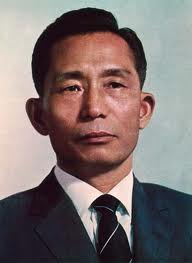A day in London allows for a few minutes talking about How Asia Works on CNBC here, and a longer discussion on the UK’s Monocle Radio ‘Globalist’ programme, (beginning at the 16 minute mark).
In between I decide to spend a couple of hours wandering the corridors of the Royal Courts of Justice, as the large building that contains the High Court of Justice and the Court of Appeal on The Strand is confusingly called. The place is of interest to anyone who wants to understand the need to constantly reform institutions. In particular, Italians should visit this building. It was constructed in the late 19th century to stop the British justice system being what Italy’s is today.
Before anyone enters, the essential book to read is Charles Dickens’ Bleak House, probably his greatest, which centres on a legal case that has multiplied and gone on for so long that no one can really remember exactly what the case is about, or quite why it started. People just attend hearings because the case(s) has(ve) taken on life(ves) of its(their) own. All that is clearly remembered is that the whole, huge, expensive, draining, painful affair concerns the Jarndyce family, which is enshrined in the case name, Jarndyce v Jarndyce. The different sides of the Jarndyce family just do what the lawyers tell them, and the case does not end until it has consumed all the family’s money, and caused the death of a sympathetic character, because the system makes it possible for cases never to end.
Things were so bad in the British legal system by the 1860s — students of development should note that this had not stopped the British economy growing and becoming the world’s most powerful — that there was eventually a cross-party consensus that radical reform was necessary. A royal commission (essentially an independent review) was set up to consolidate a morass of different legal institutions under one roof, streamline procedures and simplify judicial processes so that the system worked. The Royal Courts of Justice, which opened with their 18 (now 88) courts in 1882, shunted Britain on from the world of Bleak House. Opening the court, Queen Victoria’s speech stated the aim was to ‘conduce to the more speedy and efficient administration of justice’.
Almost always, you can just wander in to a court here and sit down and listen to what is going on. I spent half an hour observing the goings on in each of two randomly selected courtrooms. In Italy, I haven’t seen courtrooms beyond the provincial level (except on television). But some very loose points of comparison can be offered. Here in London there is no chatting during court proceedings, no playing around with mobile phones, no lawyers saying hello to their friends and colleagues in court while ignoring their clients, no male lawyers dedicating their working day to trying to flirt with any woman in sight. And everything is taped. When I once asked to tape record proceedings in an Italian court the judge grudgingly acceded, but with a look that suggested I was proposing a coup d’etat.
Unlike Italian courts, the Royal Courts give a sense of being places where stuff gets done. This is not to say that there isn’t plenty wrong with the justice system in the UK. However, compared with Italy, this is the modern world. The Royal Courts are a living museum of institutional development that is well worth a visit. For the kids, there is a room displaying all the silly outfits that judges and lawyers have worn over the years — and thankfully wear less of these days. The grown-up exhibit is the institutional progress captured in quite a beautiful building with its varied, interesting and business-like courtrooms.
Could Italy have the same thing in the foreseeable future? One way to consider this is to remember that the leaders who made the British reforms of the 1870s possible were Gladstone and Disraeli, working in concert. Would you consider that any of the putative ‘reformers’ of contemporary Italian politics — Monti,Berlusconi, Bersani, or Grillo — is in their league?
More
Imagine this in Italy: Edwin Wilkins Field, one of the key reformers and the Secretary to the royal commission of 1865 on the Royal Courts of Justice, declined remuneration!
Evolution continues: didn’t have time to go see it, but the latest addition to the Royal Courts is the Rolls Building, opened in 2011.

 Review by David Pilling
Review by David Pilling




